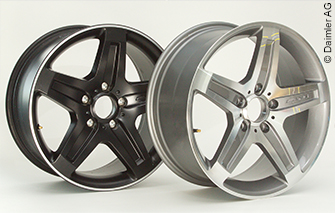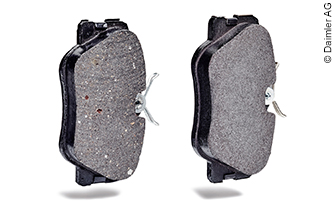German car and truck manufacturer Daimler reports seizures of more than 1.7 million counterfeits of its products in 2020. This was announced by the group in a recent release. According to that, the company triggered more than 550 raids and actively supported law enforcement authorities. In terms of products, a particular focus was on safety-relevant parts such as counterfeit brake discs and wheels. With this result, Daimler exceeded their previous year’s result.
The Group also highlights the impact that the global coronavirus pandemic had, among others. Accordingly, Covid-19 has impeded the fight against fakes e.g. due to raids that were postponed and courts which were temporarily closed. What is more, online trade continued to increase during the pandemic, reportedly making the Internet more attractive to counterfeiters of auto parts too. Daimler adapted its brand protection strategy and strengthened its online activities. “All in all, we were able to have 138,000 fake products removed from online platforms. This is around three times as many as during the same period before the pandemic”, says Florian Adt, Head of Legal Product Intellectual Property at Daimler.


Other automakers have been successful in the fight against counterfeit car parts too, as media reports. The VW Group, for example, talks about more than 100 raids and seized counterfeits worth around 6.5 million euros. Online, Volkswagen’s core brand VW PKW alone had identified thousands of offers of products every day that violated the company‘s trademarks, a spokesperson said according to a media report.
For many counterfeits, the primary target markets are the European Union and the USA, according to industry information. Raids against such criminal activity, however, are often particularly effective in those countries where counterfeits are produced, stored, or transshipped – this e.g. concerns Asia, the Middle East, and Northern Africa, according to media reports. German customs authorities also regularly intercept counterfeit car parts; all common car brands are affected, according to the General Customs Directorate in Bonn. Reportedly, counterfeit parts for visually modifying vehicles are particularly common, but safety-relevant parts such as brake pads, filters, exhaust systems, and rims can be in the focus of counterfeiters too.
To combat counterfeiting, Daimler has set up its Intellectual Property Enforcement unit on a global scale, pursuing a three-pillar strategy of detecting, attacking, and preventing. For example, offers on online platforms and trade fairs are monitored to identify counterfeiters. Aim is to stop large counterfeiting rings and the production and distribution of fake goods. For this, Daimler also makes use of preventive measures, for example by raising awareness with training and information material for customs and police.




